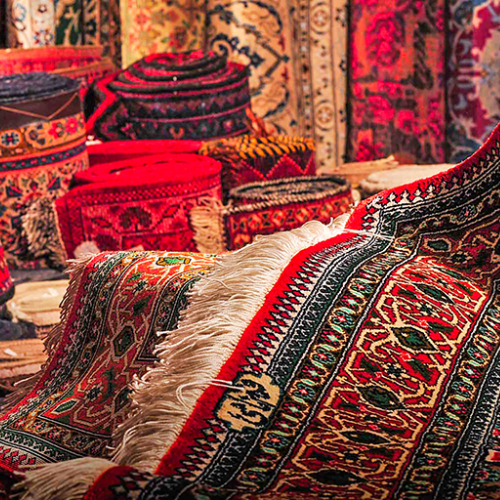Indian carpet makers are raising their voices. They are asking the government to take action against what they call an “unfair trade practice” by Turkey. The problem is simple — while India allows Turkish carpets to be imported at a lower tax rate, Turkey charges a much higher tax on carpets coming from India.
Currently, India charges 20% basic customs duty on machine-made carpets and other textile floor coverings from Turkey. But when Indian carpets go to Turkey, they face a hefty 46% duty. This makes it hard for Indian carpet makers to compete in the Turkish market.
Because of this high tax, India’s carpet exports to Turkey have dropped over the years. In 2015-16, Indian carpet exports to Turkey were worth $17.08 million. But now, in 2024-25 (up to January), that number has fallen to only $6.5 million. That’s more than a 60% drop.
Meanwhile, carpets from Turkey are entering India in larger numbers. In 2015-16, imports from Turkey were worth $4.20 million. By 2022-23, this had grown to $13.97 million. In 2023-24, it was $10.01 million, and in 2024-25 (till January), Turkish carpets worth $8.18 million had already been brought into India.
Springfield Man Mohammad Chhipa Jailed for Terror Financing After Sending $185K to ISIS via Turkey
This rise in imports and fall in exports has left Indian traders worried. They say it’s not fair and are asking for “reciprocal tariffs.” That means they want India to charge the same high duty on Turkish carpets that Turkey charges on Indian ones.
Political Tensions Add to Trade Worries
The problem is not just about money and trade. There’s also a political side to it. Traders say that Turkey has openly supported Pakistan during Operation Sindoor, a recent Indian military operation. This support has added to their concerns. They believe that India should not continue offering trade benefits to a country that is not showing friendly behavior.
Because of this, the Carpet Export Promotion Council (CEPC) has approached the government, asking for action. A delegation led by the CEPC chairman met with the Minister of State for Commerce in New Delhi to explain their concerns and demand fair treatment for Indian carpets in their own market.
The CEPC also talked about how the carpet industry helps a large number of people in India. Carpet weaving plays a significant role in the cottage industry, particularly in regions such as Uttar Pradesh. Thousands of weavers, artisans, and even farmers depend on it for their livelihood. Many of them work part-time on looms in rural areas, helping to produce beautiful handmade carpet sold across the world.
Defiant Turkey Named Worst Violator of UN Sanctions in Libya
U.S. Tariffs Add Another Layer of Pressure
Apart from problems with Turkey, Indian carpet exporters are also facing challenges from the United States. The U.S. is the biggest buyer of Indian carpets. Since 2020-21, India has been exporting over $1,000 million worth of carpets to the U.S. every year. After the U.S., European countries like Germany, the UK, France, and Italy, along with Canada, Australia, Brazil, and South Africa, are major buyers.
But a few years ago, the U.S. government imposed special tariffs on Indian handmade carpets. These extra taxes made Indian carpets more expensive in the U.S. market. As a result, Indian exporters found it harder to compete with carpets from other countries like Turkey, which faced lower taxes.
Traders say that this has made things worse for Indian weavers. While U.S. buyers now have to pay more for Indian carpets, they can still buy cheaper carpets from other places. This hurts India’s chances in the global market.
With Turkish carpet imports rising in India, and Indian carpet exports struggling due to high tariffs and international competition, Indian carpet makers feel they are at a disadvantage. They hope the government will step in to level the playing field by matching the tariffs Turkey places on Indian goods.


